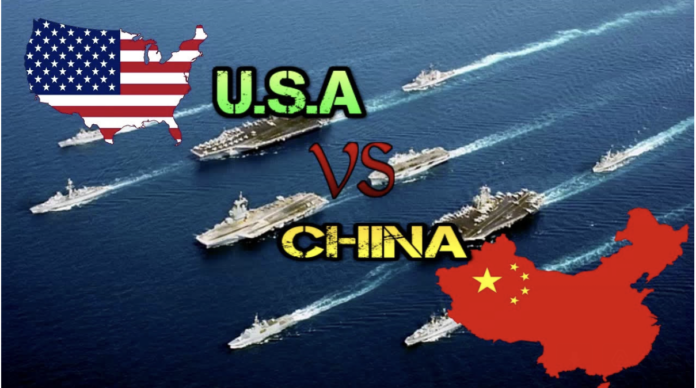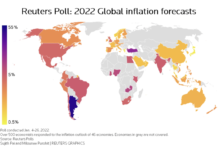Military Spending Increases: Time To #BudgetForPeace
Military spending allocated in the 2022 Wellbeing Budget is $6,077,484,000 – an average of more than $116.8 million every week, and a 10.4% increase on actual spending in 2021. [1]
This year’s increase illustrates yet again that the government remains stuck in the same old thinking about ‘security’, choosing to focus on an outdated narrow concept of military security rather than real security that gives all New Zealanders the chance to flourish. As but one example, the Budget allocation for preventing and eliminating family and sexual violence, which would provide real security to so many vulnerable individuals and families, is equivalent to less than 30 hours of the amount of military spending.
It is shameful that funding for combat-ready armed forces continues to be a spending priority when there are so many other major issues facing Aotearoa: the shocking levels of poverty and social inequality, lack of affordable housing, failing health system and substandard hospital buildings, insufficient action on climate change, and a range of other areas requiring urgent attention. Military spending negatively impacts on all of these by diverting resources that could be put to better use.
Similarly, diplomacy and negotiation are more positive ways for New Zealand to relate to communities in other parts of the world instead of deploying combat-ready armed forces overseas, but the total amount allocated for the Ministry of Foreign Affairs (including overseas development assistance) is only 29.4% of the amount of military spending.
For decades successive governments have stated that there is no direct military threat to this country; and even if there was, the New Zealand armed forces are not of a sufficient size to deter any military aggression, yet military spending keeps increasing.
Rather than continuing to focus on outdated narrow military security concepts, we urgently need to transition from maintaining combat-ready armed forces to civilian agencies that meet the wider security needs of all New Zealanders and our Pacific neighbours. Given New Zealand’s comparatively limited resources, the desperate need for substantially increased social funding domestically, as well as the urgent need for climate justice in the Pacific and globally, it simply makes no sense to continue to spend billions on combat equipment and activities.
Fisheries and resource protection, border control, and maritime search and rescue could be better done by a civilian coastguard with inshore and offshore capabilities, equipped with a range of vehicles, vessels and aircraft that are suitable for our coastline, Antarctica and the Pacific, which – along with equipping civilian agencies for land-based search and rescue, and for humanitarian assistance here and overseas – would be a much cheaper option as none of these require expensive combat hardware. [2]
In addition, that would surely be a more useful contribution than New Zealand continuing to be involved in pointless gunboat diplomacy like joining the UKUS carrier strike to parade the new British aircraft carrier around the Pacific last year; or being involved in destructive full-scale combat assaults on land and sea through military training “exercises” such as RIMPAC that are not only costly, but also harmful to the environment, marine and other life, while increasing New Zealand’s climate-destroying emissions and wasting non-renewable resources.
If there is any lesson to be learnt from the global pandemic and escalating climate emergency, it must be that new thinking about how best to meet our real security needs is essential. Instead of relying on an ideology that focuses on outdated narrow military security concepts, New Zealand could – and should – lead the way. Instead of continuing down the path of spending $20 billion plus (in addition to the annual military budget) over the next decade for increased combat capability, including new military aircraft and warships, this is an opportune time to choose a new and better way forward.
A transition from combat-ready armed forces to civilian agencies, along with increased funding for diplomacy, would ensure New Zealand could make a far more positive contribution to wellbeing and real security for all New Zealanders, and at the regional and global levels, than it can by continuing to maintain and re-arm small but costly armed forces. Only then will we finally see a genuine Wellbeing Budget that enhances human security, resilience, and prosperity.
Where you can get more information
Further information is available on the Aotearoa New Zealand Campaign on Military Spending page, http://www.converge.org.nz/pma/gdams.htm
References
[1] This is the total across the three Budget Votes where most military expenditure is itemised: Vote Defence Force $4,898,349,000; Vote Defence $1,177,959,000; and Vote Education $1,177,959,000. The 2021 estimated actual expenditure total was $5,504,811,000 ($316,461,000 more than was allocated in Budget 2021, eg, ‘Military spending increases in Budget 2021’, Peace Movement Aotearoa, 20 May 2021)
[2] For more information about the multiple costs of maintaining combat-ready armed forces, and better ways forward, see ‘Welfare or Warfare? Submission on Budget Policy Statement 2022’, Peace Movement Aotearoa, 28 January 2022, at
www.converge.org.nz/pma/budget-policy-sub,jan2022.pdf
The first point is that Peace Movement Aotearoa is exhibiting a narrow view ‘security’. Yes, prevent family and sexual violence contributes to the security of individuals in NZ. However, vulnerable people in NZ will be a lot worse of if trade routes in the South China Sea or Malacca Strait are compromised. Look at the effect a war on the other side of the world is having on NZ’s economy. The war in Ukraine clearly demonstrates the need for military capability. Two decades of trying to work with Putin’s Russia has culminated in a shooting war and the only thing blocking Putin’s aggression is the willingness, backed by military of Britain, the United States and eventually NATO to oppose it. Also what prevents escalation is deterrence, Putin knows that the first chemical or tactical nuclear attack will finish war because NATO will probably intervene and has the military power to defeat him.
Collective security is the only way to defeat autocratic aggression.
It is shameful that funding for combat-ready armed forces continues to be a spending priority when there are so many other major issues facing Aotearoa: the shocking levels of poverty and social inequality, lack of affordable housing, failing health system and substandard hospital buildings, insufficient action on climate change, and a range of other areas requiring urgent attention. Military spending negatively impacts on all of these by diverting resources that could be put to better use.
Spending on NZ’s military is approximately 1.5 % of GDP or about $ 5.4 billion in 2021. Auckland Transport’s annual budget is approximately $ 2 billion. The health budget in the same year was approximately $ 38 billion. Education and social welfare are similar.
I think it is ridiculous to claim defence spending is a priority.
Similarly, diplomacy and negotiation are more positive ways for New Zealand to relate to communities in other parts of the world instead of deploying combat-ready armed forces overseas, but the total amount allocated for the Ministry of Foreign Affairs (including overseas development assistance) is only 29.4% of the amount of military spending.
This is silly uneducated comparison the military is expensive to run because it requires large capital purchases. MFAT does not.
A more sensible analysis is to combine the two budgets because MFAT’s work is often intertwined with Defence for example:
- NZ helped negotiate a settlement that brought peace to Bougainville – stabilising the south west Pacific. With military forces available support the MFAT initiative this activity would not have been successful. Imagine having to rely solely on the Australian or US military to provide security for peace negotiations and then for peacekeeping?
- Timor Leste is now a stable, democratic and independent regime because of a significant NZ diplomatic and military contribution.
- Likewise the Solomon Islands.
- Deployment of NZ forces to Afghanistan produced significant détente with the United States and may have contributed to gaining better access to US markets.
For decades successive governments have stated that there is no direct military threat to this country; and even if there was, the New Zealand armed forces are not of a sufficient size to deter any military aggression, yet military spending keeps increasing.
While there is no direct threat to NZ, this point neglects the principle of collective security that we are seeing demonstrated right now in Ukraine. It could be argued that there is no ‘direct threat’ to the US or the UK.
However, aggression and disregard for international law leads to instability and more war. The way to stop this is for like-minded nations to work together in collective security arrangements.
Collective security relies on military commitments. Unless you are willing to commit soldiers no other partner is going to take you seriously relegating any diplomatic initiatives to inconsequentiality.
For a tiny country NZ has a pre-eminent position in world affairs because instead of turning away we have consistently committed soldiers to collective security; from fighting the Nazis and Japanese militarism in WW2 to modern peacekeeping the sacrifice of our soldiers demonstrates our commitment to collective security and gives NZ a moral voice on the world stage.
Rather than continuing to focus on outdated narrow military security concepts, we urgently need to transition from maintaining combat-ready armed forces to civilian agencies that meet the wider security needs of all New Zealanders and our Pacific neighbours. Given New Zealand’s comparatively limited resources, the desperate need for substantially increased social funding domestically, as well as the urgent need for climate justice in the Pacific and globally, it simply makes no sense to continue to spend billions on combat equipment and activities.
See the points above. A combat ready force is trained to a very high standard and can then deployed in lower threat environments like managing IQ facilities. Going the other way is impossible.
Fisheries and resource protection, border control, and maritime search and rescue could be better done by a civilian coastguard with inshore and offshore capabilities, equipped with a range of vehicles, vessels and aircraft that are suitable for our coastline, Antarctica and the Pacific, which – along with equipping civilian agencies for land-based search and rescue, and for humanitarian assistance here and overseas – would be a much cheaper option as none of these require expensive combat hardware. [2]
See above. An effective military can be used to perform these functions however, a coast guard or search and rescue team can’t go the other way and fight a war if required.
For $5.4 billion NZ gets a pretty good deal.
In addition, that would surely be a more useful contribution than New Zealand continuing to be involved in pointless gunboat diplomacy like joining the UKUS carrier strike to parade the new British aircraft carrier around the Pacific last year; or being involved in destructive full-scale combat assaults on land and sea through military training “exercises” such as RIMPAC that are not only costly, but also harmful to the environment, marine and other life, while increasing New Zealand’s climate-destroying emissions and wasting non-renewable resources.
See above. Exercising like this reinforces our relationship not only with UK and US but demonstrates our commitment to countries in the region like Malaysia, Singapore, Indonesia, Taiwan, Japan and South Korea.
By being willing to work meaningfully (i.e. committing soldiers) we demonstrate that we are a stalwart partner – one that is worthy of consideration in other diplomatic and economic discussions.
By not committing militarily NZ is essentially ‘bludger’ expecting other nations to ‘bleed’ for collective security but still wanting to reap the economic rewards of international law and a stable world.
Ben Morgan is a tired Gen X interested in international politics. He is TDB’s Military analyst.






The simple question to ask the peace movement is what will their reaction be when 300 Chinese fishing boats turn up to harvest New Zealand waters?
As is happening in South America;
https://hongkongfp.com/2022/03/12/how-chinas-fishing-fleet-is-devastating-ecosystems-harming-poor-countries-and-contributing-to-conflict/
Will the Greens advocate for higher military spending to protect the dolphins? How will New Zealand stop the rape of the oceans by Chinese fisherman?
Not a coincidence that China is strengthening is hold over the South Pacific. It’s need for all types of fish is growing by 6% per year. It has to be raped from somewhere!
South Pacific and the Southern Ocean south of New Zealand is next.
And if China’s uses military assets to protect the fishing fleet, where is the ability of New Zealand to join Australia and South American countries to prevent to collapse of the fishing stocks in the South Pacific and Southern Oceans?
Krill fishing is but the latest of eco damaging fisheries practiced in the Southern Ocean. Not just by China but others like Russia, South Korea, Norway, Ukraine and Chile. I guess when the krill are gone so will the fish (and whales). Oh well the peace lovers will be happy for New Zealand defended the krill (and the penguins) with nothing and now nothing will be left. But we will be at peace with that.
https://www.reuters.com/business/cop/antarctica-does-burgeoning-krill-fishery-threaten-wildlife-2022-02-24/
“In October, the Commission for the Conservation of Antarctic Marine Living Resources will consider revising catch limits and trawling zones, due to conservation concerns. It declined to give details of the proposed changes. Approval requires a consensus vote by all 26 commission members.
Scientists fear some nations may object to stricter measures. Beijing and Moscow have been notable opponents of efforts to establish Marine Protected Areas in the region.
The Russian state fishing agency, noting the “impressive” krill stocks in the region, said any changes would have to be “clearly justified” by scientific evidence. “There are not many areas open to fishing.””
I have been looking at the Budget documents over the last week. They do require a fair bit of analysis. It looks like the capital expenditure appears twice, once in the Defence Force Vote and once in the Defence (MOD) vote. However, it would seem to be the same money, which effectively is transferred from one vote to the other. To do this require a formal appropriation. The money is being used to pay for the new C130J Hercules, and for the final payment of the new P8 Poseidon, which are being delivered later this year.
If the total spend was actually over $6 billion, it would mean New Zealand’s defence expenditure will have increased in just one year by one third from 1.5% of GDP to 2.0% of GDP. I know enough about this subject to know that is simply not the case (and neither has the Minister said defence expenditure is now 2% of GDP) notwithstanding the extra capital required to purchase the new aircraft.
I might note the new aircraft simply replace the existing aircraft, which are nearly 60 years old, though have had substantial upgrades, the last being ten years ago. It is a one for one replacement of the Hercules, and reduction of the maritime surveillance fleet from the current six P3’s to four P8’s.
Ben, you are spiritually an Old Cold Warrior. Basically your world view can be summed up as Russia / China autocratic bad, UK / USA good guys. Luckily for your argument NZ population and politicians probably agree with that stance.
Myself I believe in armed non aligned neutrality which may actually cost more. We need to be able to provide sufficient deterence locally to make it unattractive to challenge our shores and sea lanes.
Your comment on moral authority is such a throwback to King and Empire imperialism. If you took notice of who objected to Russias actions in Ukraine it was only NATO nations, the so called “International Community”. South America, Asia, Africa would regard us as imperial lapdogs. They are our trading future. Clever positioning not.
What absolute crap. We need to drive all American scum out of New Zealand and keep them out of our waters. If we don’t want Chinese fishermen in the waters around us, no problem- make a deal where we host DF-21’s to shoot at Australian and American scum, and they keep the fishing vessels away.
Yup. It seems Ben is doing a Ukraine and declaring end of operations on reporting on that war and advancing triumphantly in a backward direction to offer cold-war era analysis on NZ, US, and China.
From a Russian –
https://aftershock.news/?q=node/1114122“Putin is about to win a shocking victory.”
29.5K 13:43 – 29/may/22 genby
The British newspaper Telegraph writes:
February 24. “Putin’s bloody rule has come to an end.”
April 3. “Russia is losing to the West in its own game.”
April 21. “Putin’s war failed, but it could have been worse.”
May 5. “Humiliated Russia is losing an epochal battle.”
May 12. “Defeating Putin will cost us a high price.”
May 26. “Putin is about to win a shocking victory.”
When I read this, I thought it was a fictional imitation of Napoleonic editorials, taken from the book by Academician Tarlet.
The first news: “The Corsican monster has landed in the Bay of João.”
The second news: “The man-eater is coming to Grasse.”
The third news: “The usurper has entered Grenoble.”
The fourth news: “Bonaparte has occupied Lyon.”
The fifth news: “Napoleon is approaching Fontenaebleau.”
The sixth news: “His Imperial Majesty is expected today in his faithful Paris.”
But no, everything turned out to be true, and all the headlines are taken from a column by Con Coughlin, the Telegraph’s defense editor and chief foreign affairs columnist. Not only that, all titles can be collected from one page. It is perfectly clear how the thinking of the Western man in the street is changing.
Truly beautiful.
I had a quick look back at Bens analysis, not good. The Russians appear to be winning hands down, minimising their casualties whilst systematically destroying Ukraines army. Zhelensky meanwhile is sounding a bit like that other madman in a bunker trying to convince himself and us that black is white. It is time for Ukraine to sue for peace whilst it still exists and to stop the slaughter of their troops.
I have been following Ben’s analysis on Ukraine as well. Actually he has been pretty accurate. He predicted that when Russian retreated to the Donbas they would do OK. Hold onto their existing territory and make gains, especially in the pockets. For instance Russia’s likely success in taking Severodonetsk. But crossing major rivers seems very fraught.
As I have noted previously, the Ukraine war will decided in two or three months with the Ukrainian offensive over the land bridge.
I anticipate serious negotiations in the northern winter.
Russia will certainly gain territory, notably the Donbas, but their overall aim of humbling Ukraine and splitting the West is likely to be judged as a failure. People in Russia, and the senior leadership around Putin, will ask the question as to whether gaining the Donbas, and perhaps a land bridge from Crimea to the Donbas was worth the 50,000 Russian deaths (the likely number by the end of 2022) plus of course Russia’s isolation from the West. This, to a significant extent, will last for some time after a peace settlement.
Pretty solid comments Wayne.
Cherry-picking amongst the turds there.